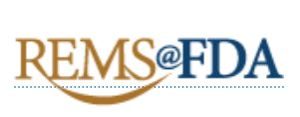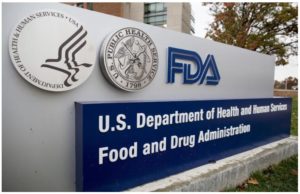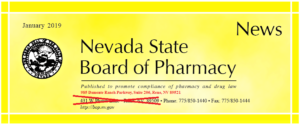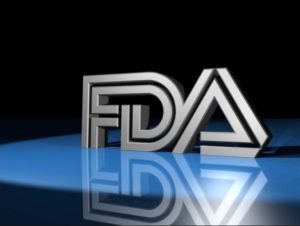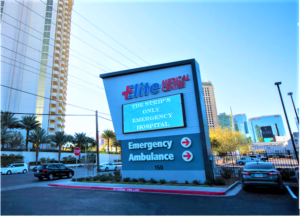- FDA oversight of the prescribing of fentanyl products is inadequate, report finds (healthcarefinancenews.com)Assessment of the FDA Risk Evaluation and Mitigation Strategy for Transmucosal Immediate-Release Fentanyl Products (jamanetwork.com)
The Food and Drug Administration and manufacturers did not take action when evidence emerged that potentially lethal fentanyl products were being inappropriately prescribed to patients, new research...shows...even as evidence emerged that as many as half of patients were taking dangerous medications known as TIRFs that should never have been prescribed to them, the FDA and fentanyl makers did not review prescribing records of even a single physician to consider disqualifying them from the program, which would have prevented them from prescribing the products...The study focused on Transmucosal Immediate-Release Fentanyls, or TIRFs, which are more dangerous than most prescription opioids on the market due to their very high potency and rapid onset. TIRFs are designed to get into the bloodstream within seconds, and because of their risks, were approved by FDA only for adult cancer patients "who are already receiving and who are tolerant to opioid therapy for their underlying persistent cancer pain."
- FDA putting Walgreens ‘on notice,’ weighs enforcement action for alleged illegal tobacco sales to minors (cnbc.com)
Food and Drug Administration Commissioner Scott Gottlieb said he's putting pharmacy chain Walgreens "on notice" for allegedly selling tobacco products to minors...The agency has already filed formal complaints seeking to block a Walgreens' location in Miami and a Circle K Store in Charleston, South Carolina, from selling cigarettes or cigars for 30 days, citing "repeated violations."...Walgreens, the FDA noted, is currently the top violator among pharmacies that sell tobacco products. Some 22 percent of Walgreens locations inspected by the agency caught employees illegally selling tobacco products to minors...
- Exclusive: Facing crackdown in Canada, drugmakers offered billions in price cuts (reuters.com)
Canadian pharmaceutical industry lobby groups, in an effort to head off a planned crackdown on prescription drug prices, offered to give up C$8.6 billion ($6.6 billion) in revenue over 10 years, freeze prices or reduce the cost of treating rare diseases...Those industry offers did not impress federal officials, coming last year as Canada prepared to expand the powers of a little-known federal watchdog called the Patented Medicine Prices Review Board to reduce the cost of prescription drugs...The government proposals would change the countries Canada compares its prices to, dropping the United States where they are highest, and set a formula to assess cost-effectiveness of medicines...the new rules were scheduled to come into effect last month but have been delayed as the government reviews feedback, which has some wondering if they will ever be implemented...Unlike other countries with universal healthcare, Canada’s government-funded healthcare system does not cover prescription drugs. Most Canadians rely on an expensive patchwork of public and private insurance plans for that. Among industrialized nations, only the United States and Switzerland spend more on prescriptions per capita...
- EDITORIAL: Transparency and holding down health care costs (reviewjournal.com)
Under a new federal regulation that went on the books at the start of the year, hospitals are required to post online the prices of services offered. Not surprisingly, some facilities aren’t eager to comply and are attempting to undermine the point of the new requirement...This lack of transparency eliminates a vital competitive pressure on doctors and hospitals that might help control costs. Meanwhile, patients are forced to navigate a confusing mélange of bills and insurance notices after the fact...In what other segment of the marketplace would average consumers accept an arrangement in which they purchase a service or product without knowing their financial obligation?...the new regulation is at least “pushing hospitals to think more about consumerism.” That’s a good thing — even if the new transparency regulations will require further tweaking to ensure consumers get the information in plain English.
- FDA issues statement on new policy for pricing of generic drugs (chaindrugreview.com)
...In too many cases, branded drugs that are no longer protected by patents or other exclusivities do not face expected competition. In fact, there are several hundred of such branded drugs that do not have any generic competition. Instances like these may keep prices high and ultimately hurt American patients...We’ve been taking new policy steps at the FDA to support downward pressure on drug prices by helping to clear a path for more efficient generic development...We’re working to reduce barriers to generic development and to lower the cost of generic entry so that more of the generic medicines that the FDA approves are launched and reach patients...
- issue draft guidance with recommendations on establishing active ingredient sameness.
- development of new analytical tools and in vitro tests to provide additional accurate, sensitive and reproducible tools to support approval of complex generic drugs.
- laying out new, efficient guidelines for the use of a novel pathway that provides incentives for developing generic versions of drugs that currently face little or no competition - Competitive Generic Therapies
- Nevada State Board of Pharmacy News (bop.nv.gov)
Board Members
Leo Basch, PharmD, RPh, Las Vegas
Robert Sullivan, Reno
Jason Penrod, PharmD, RPh, Reno
Kevin Desmond, RPh, Reno
Wayne Mitchell, PharmD, RPh, Carson City
Melissa Shake, PharmD, RPh, Las Vegas
Jade Jacobo, PharmD, JD, RPh, Las Vegas
Retirement of the Executive Secretary
- Larry L. Pinson, PharmD, RPhNew Reno Office -
985 Damonte Ranch Parkway, Suite 206, Reno, NV 89521.
Board Member UpdateNevada Medicaid Initiates Antibiotics Prior Authorization Criteria - Nevada Department of Health and Human Services
National Pharmacy Compliance NewsFinal Guidance Documents Address FDA Policies Related to DSCSA
First FDA-Approved Drug Containing Extract From Cannabis Plant to Be Placed in Schedule V
ASHP Guidelines Provide Recommendations for Preventing Patient Harm From Medication Errors
FDA’s Final Guidance Documents Address Compounding and Repackaging of Radiopharmaceuticals
Pharmacy Toolkit Encourages Conversations With Patients About Prescription Opioids
Biosimilars Added to FIP’s Policy on Pharmacists’ Right to Substitute a Medication
FDA Offers CE Course on Reducing Hypoglycemic Events in Patients With Type 2 Diabetes - Leveraging Health Literacy and Patient Preferences to Reduce Hypoglycemic Events in Patients with Type 2 Diabetes
- FDA moving to ‘risk-based’ inspections even as valsartan scare adds new wrinkle to oversight (fiercepharma.com)
FDA inspections of generic drug plants are on the rise and should continue to increase through 2019...But the game has changed...with the number of pre-approval inspections growing more than surveillance inspections, in part to approve more generics in an effort to lower drug prices. This move to “risk-based” inspections...is expected to be more effective in a growing global manufacturing industry the FDA must oversee with limited resources...
- FDA clamps down on illegal dietary supplements (pharmaceutical-technology.com)
The Food and Drug Administration has announced new measures to strengthen its regulation and oversight of dietary supplements, which have not been reviewed by the regulator...FDA Commissioner Scott Gottlieb said: “It’s clear that the US Food and Drug Administration plays an important role in helping consumers make use of safe, high-quality dietary supplements while also protecting Americans from the potential dangers of products that don’t meet the agency’s standards for marketing...the FDA is committing to new priorities when it comes to our oversight of dietary supplements at the same time that we carefully evaluate what more we can do to meet the challenge of effectively overseeing the dietary supplement market while still preserving the balance struck by Dietary Supplement Health and Education Act...the FDA posted 12 warning letters and five online advisory letters to US and international companies, which are illegally selling more than 58 products, primarily dietary supplements, as treatments for serious health conditions, such as Alzheimer’s disease, when their safety and efficacy is unknown...The companies contacted include Nutrition Coalition, TEK Naturals, Sovereign Laboratories and DK Vitamins...
- Drugmakers say UK could lose out on EU anti-counterfeit drugs push (reuters.com)
Drugmakers warned...that if Britain leaves the European Union without a deal next month Britons could miss out on an EU-wide system to fight counterfeit drugs that will go live on Saturday after years of British involvement in building it...Drugmakers, wholesalers and pharmacies across Europe have worked for more than four years on a system based on a shared database and tamper-proof packages with barcodes that will go live on Saturday, to fulfill the European Union’s Falsified Medicines Directive...“It would be an absolute travesty if NHS patients aren’t part of a system specifically designed to protect them. But that’s exactly what could happen in a ‘no deal’ Brexit,” Rick Greville, Director of Supply Chain at the Association of the British Pharmaceutical Industry, said in a statement by the lobby group...The European Medicines Verification System will allow dispensing pharmacists to scan drug packages and link up to a database to give patients assurance on the product’s authenticity.
- Emergency room off Las Vegas Strip makes waves with new business model (reviewjournal.com)
Just like any full-service emergency room, Elite Medical Center treats a range of urgent medical problems, from headaches to heart attacks. But unlike at the other ERs in Southern Nevada, you’ll generally pay more for your care...That’s because the facility doesn’t contract with any insurer. So if you break a bone or your child has an earache and you go there, you’ll be paying for out-of-network care...Elite is licensed as a hospital by the state, but experts say it is operating similarly to free-standing emergency rooms that have become common recently in other states. It is the only unaccredited hospital in Clark County that provides emergency care but doesn’t contract with insurers...There’s no license for a free-standing ER in Nevada, though hospitals are allowed to open satellite emergency rooms that provide care at other locations....State law doesn’t mandate that these facilities be accredited by the federal Centers for Medicare or Medicaid Services or accept any insurance, private or public...“We don’t think that’s appropriate,” said Bill Welch, president and CEO of the Nevada Hospital Association, which represents UMC and 65 other medical facilities statewide. “We think that Elite Medical Center, if they want to operate as a hospital in the state, that they should operate as a CMS-certified center and they should be accredited and Medicare-participating. Without those things, we’re concerned.”

